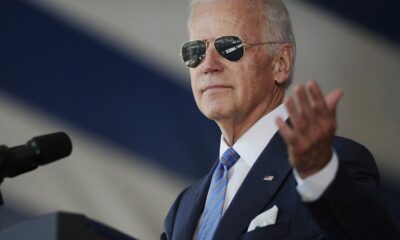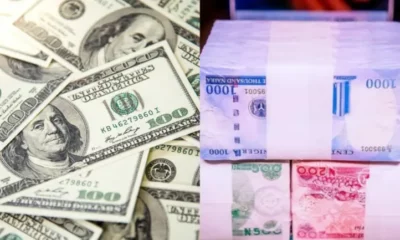Top Stories
Recession: What US Federal Reserve Said About New Rate Hike
Recession: What US Federal Reserve Said About New Rate Hike
After intensifying interest rate hikes, Federal Reserve Chairman, Jerome Powell indicated on Wednesday that the central bank hopes to prevent a recession.
The Fed’s interest rate hike on Wednesday was the most in a single meeting since 1994. The target range for short-term borrowing costs is currently 1.50% to 1.75%.
Powell said the Fed’s goal is to depress the rapid pace of inflation closer to its 2% target, all while preserving a “strong” labour market.
“We’re not trying to induce a recession now, let’s be clear about that,” Powell told reporters after the policy-setting Federal Open Market Committee raised short-term rates by 0.75%.
What you should know
- The Fed’s unusual move on Wednesday sparked concerns that the central bank is now more likely to hike rates at a pace that would push the economy into recession. And this action has sparked speculation about whether a 0.75% rate hike paves the way for much bigger movements in the months ahead.
- However, Powell stated that the Fed has no plans to accelerate the pace of rate hikes in the near future, at least not at its next policy-setting meeting on July 26-27.
- “The next meeting could well be about a decision between 50 and 75 [basis points],” Powell said Wednesday, essentially downplaying any speculation over a 100 basis point move.
- However, Powell reminded markets that the central bank retains flexibility on its rate moves — which he said justified the Fed’s sudden decision to abandon plans for a 0.50% move this week. He added, “Our policy is adaptive and it will continue to do so,”
- Projections from the Fed published Wednesday showed the median official expects interest rates will rise to 3.4% by year-end, well above the 2.5% level that many Fed officials have described as “restrictive” for economic activity.


 Sports10 hours ago
Sports10 hours agoDaniel Anjorin’s GoFundMe campaign soars past the £100,000

 Top Stories13 hours ago
Top Stories13 hours agoWhy Biden decided to speak out about the campus protests after days of silence

 Top Stories10 hours ago
Top Stories10 hours agoI want to start fellowship group – Toke Makinwa

 News12 hours ago
News12 hours agoBlack Market Dollar (USD) To Naira (NGN) Exchange Rate Today 4th May 2024

 Politics14 hours ago
Politics14 hours agoNigerian Army recruitment: How to apply

 Entertainment6 hours ago
Entertainment6 hours agoAFRIMA Hosting Rights: African Union Writes Nigeria, South Africa

 News13 hours ago
News13 hours agoSacked EKEDC MD, Tinuade Sanda Embroiled in Fake Certificate Scandal

 Top Stories14 hours ago
Top Stories14 hours agoNERC Unbundles TCN, Establishes New System Operator






